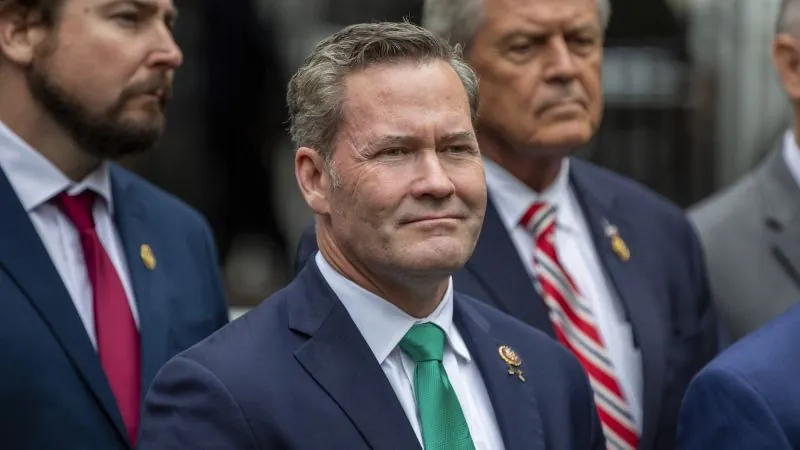
Trump Picks Mike Waltz as National Security Adviser: What This Means for America's Global Strategy
2024-11-12
Author: Kai
Trump Picks Mike Waltz as National Security Adviser
In a significant move for his upcoming second term, President-elect Donald Trump has tapped Florida Congressman Mike Waltz to serve as his national security adviser. This decision was first reported by The Wall Street Journal and has implications for how the U.S. will navigate pressing geopolitical challenges, including the ongoing conflicts in Ukraine and the Middle East, particularly the Israel-Hamas crisis.
Waltz, a combat-decorated Green Beret with experience serving in Afghanistan, the Middle East, and Africa, will bring a military perspective to a role that has previously seen turbulent relationships with Trump. Notably, both John Bolton and H.R. McMaster had contentious exits from their positions as national security advisers, often criticising Trump's leadership style post-departure. In choosing Waltz, Trump seems to prioritize loyalty, rewarding those who have consistently supported him, especially after sour experiences with top aides during his first term.
One of Waltz’s primary roles will be to reassess the United States' approach to key global players, including Russia, China, and Iran. His appointment may also generate debate within the Republican Party between national security hawks and isolationists — a division that has surfaced in discussions about Trump’s "America First" strategy. As a former policy staffer in the George W. Bush administration, Waltz is expected to adopt a foreign policy approach that echoes the perspectives of Trump's former Secretary of State, Mike Pompeo.
On immigration, Waltz has previously expressed concerns about the treatment of legal immigrants in the wake of the U.S. withdrawal from Afghanistan. He highlighted the frustrations of lawful immigrants who feel overlooked in light of others bypassing the immigration process. This stance may indicate a strict enforcement approach at the border, as Waltz has emphasized the importance of securing it and stopping illegal inflows. He has recognized the distress of Afghan allies left behind, illustrating a commitment to those who risked their lives alongside American forces.
As Trump continues to assemble his administration, all eyes will be on how Waltz will navigate these complex issues as national security adviser. His selection is not only a reflection of Trump's priorities but also a harbinger of the administration's broader strategy for dealing with international challenges in an increasingly unpredictable world. The implications of Waltz's appointment will likely be felt not just in Washington, but across the globe.

 Brasil (PT)
Brasil (PT)
 Canada (EN)
Canada (EN)
 Chile (ES)
Chile (ES)
 España (ES)
España (ES)
 France (FR)
France (FR)
 Hong Kong (EN)
Hong Kong (EN)
 Italia (IT)
Italia (IT)
 日本 (JA)
日本 (JA)
 Magyarország (HU)
Magyarország (HU)
 Norge (NO)
Norge (NO)
 Polska (PL)
Polska (PL)
 Schweiz (DE)
Schweiz (DE)
 Singapore (EN)
Singapore (EN)
 Sverige (SV)
Sverige (SV)
 Suomi (FI)
Suomi (FI)
 Türkiye (TR)
Türkiye (TR)